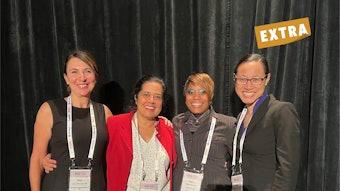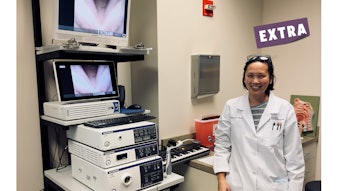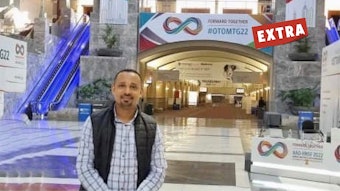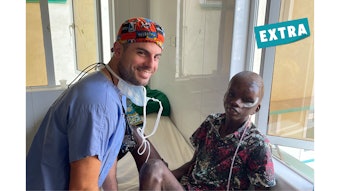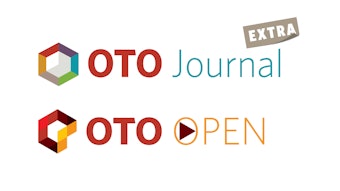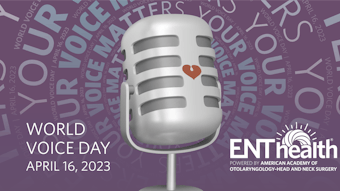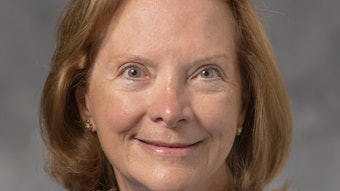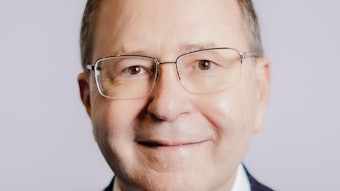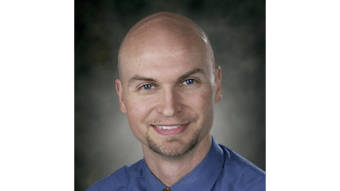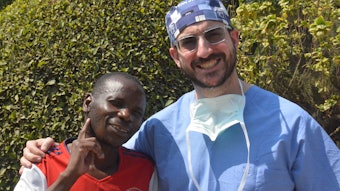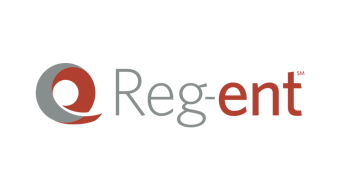AAO-HNS 2023 Election: Candidate Statements
Review statements from the 2023 AAO-HNS Annual Election candidates to learn more about each candidate. Voting opens May 8.
How to Cast Your Vote
AAO-HNS has partnered with YesElections (powered by Election America) to administer the 2023 election of candidates for leadership positions. To ensure your election-specific broadcast email arrives safely in your inbox on May 8, please make sure you have provided an individual email address to the Academy. You can check your email currently on file by logging into your profile at https://myspecialty.entnet.org/.
President-elect
(Vote for one of two)
Questions posed to the Candidates
- What is the Academy’s greatest challenge, and how would you address it?
- Where do you see the Academy in the next 10 years, and what attributes do you have to lead us there?
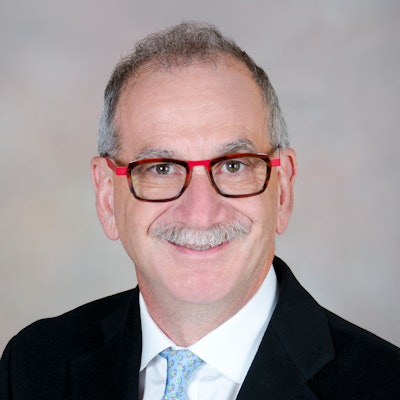 Mark K. Wax, MD
Mark K. Wax, MD
Candidate: AAO-HNS/F President-elect
It is hard to pick a single issue that stands alone, so I will address the two that concern me the most. The membership of the Academy is a diverse population as it relates to many factors. The ability to communicate among the various different generations continues to be challenging. There are those who prefer hardcopy, those who wish to read it on the Internet, and those who are social media savvy. Engaging our members by using a diverse communication portfolio is paramount to understanding not only what our members want and need but also to informing them what the Academy is doing that benefits them. We need to be able to respond and pivot quickly to maintain our relevance to all of our communities.
Our Annual Meeting is the largest educational opportunity in the world. It provides networking opportunities and abilities to learn, to grow, and to visit with colleagues. The pandemic has challenged our previous methodology and forced us to examine the concepts of virtual versus live interactions. Integrating how we can continue our previous excellence and grow over the upcoming years will be a challenge. Although we have a strong framework of a cloud-based educational and informational network, it needs to be fine-tuned to address the changing environment.
The Academy continues to be the leading otolaryngology society in the world. It functions to advocate for its members at the local and national levels on many fronts. It represents the interests of otolaryngologists in being able to provide the best available care to our patients and keep our members’ knowledge base as up to date as possible. It does so by advocating with insurance and government providers to maintain our ability to independently manage our patients. It ensures that otolaryngology patients are managed by otolaryngologists. In order to maintain the highest level of knowledge and skills, otolaryngologists must be up to date on many fronts.
We are the leading educator for otolaryngology in the world. We provide multiple educational formats to address the full spectrum of our membership. We have been at the forefront of developing new methodologies to communicate with our membership, advocate on their behalf, and provide educational opportunities. I believe the strength and foundation that have been established will allow us to expand our opportunities so that we not only maintain our standing in all of these areas but continue to grow and develop in a changing economic, communicative, and regulatory environment.
My activities with the Academy over the past decades have left me understanding how best to use the resources necessary to maintain and grow our Academy in all of these diverse areas. Experience on the Board for almost a decade, coordinating between comprehensive otolaryngology and subspecialties, as well as understanding the local and national political scenes will allow me to continue supporting the Academy on its path of excellence.
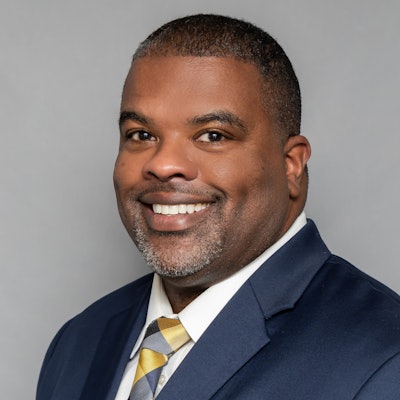 Troy D. Woodard, MD
Troy D. Woodard, MD
Candidate: AAO-HNS/F President-elect
Ensuring that our patients receive high-quality, affordable care is the top priority of the AAO-HNS. Although we may face hurdles, such as reduced reimbursements, increased prior authorization requirements, and additional administrative burdens, we have the power to overcome them by working together and keeping our focus on what's important: providing the best possible care for our patients. Together we can rise to the challenge and continue to deliver exceptional care in this constantly evolving environment.
To achieve a brighter future for the AAO-HNS and the patients we serve, it is imperative that we stay relevant and engaged with all members of our Academy. By providing pertinent educational, advocacy, and grassroots resources that are easily accessible and applicable to our diverse practices and patients, we can effectively demonstrate the value of AAO-HNS membership. Listening to feedback, learning from past experiences, and adapting to changes in our industry allows us to remain relevant, engaged, and valuable to all our members.
Advances in technology, healthcare delivery, and evolving patient needs will shape the future of our practices. Payers are moving toward value-based models that prioritize outcomes, patient satisfaction, and cost-effectiveness. The AAO-HNS must continue to be proactive in developing quality metrics addressing these and other issues.
Diversity and equity in healthcare are essential to our Academy's mission over the next decade. As our nation's population continues to become more diverse, it is critical to have a healthcare workforce that reflects the communities we serve. I envision the Academy as a leader in promoting diversity and equity in healthcare. With a strong emphasis on collaboration and innovation, we will continue to provide the necessary tools, guidance, and education needed for success.
As a proven leader within the AAO-HNS, I am thrilled to have the opportunity to run for the role of President-elect. My experience has prepared me well for this position. During my time as Vice Chair of the Board of Governors (BOG) Legislative Affairs Committee, we achieved great success in increasing State Tracker participation and developing tool kits to help societies learn the fundamentals of advocacy. As Member-at-Large of the BOG, I was able to engage subspecialties and revitalize the BOG Regional Representatives program to relay important information regarding advocacy and payer issues in a bidirectional manner with our Academy members.
My experience as BOG Chair and member of the AAO-HNS Board of Directors and Executive Committee has given me a deeper understanding of the challenges facing our Academy. This experience was critical during the unexpected era of COVID. I have gained the necessary skills to disseminate information and to assess and manage finances, policies, and inner workings of the AAO-HNS.
I am confident that my experience has prepared me for the role of President-elect. My service, resilience, growth mindset, capacity to build bridges, and ability to inspire and empower others are attributes that will make me successful. Together, we can overcome the challenges we face and continue to forge a more inclusive and equitable future for the AAO-HNS and our patients.
Secretary/Treasurer-elect
(Vote for one of two)
Questions posed to the Candidates
- What are your priorities for fiscal responsibility in the present economy?
- What non-dues revenue stream(s) do you plan to focus on and/or optimize to help grow the Academy’s revenues?
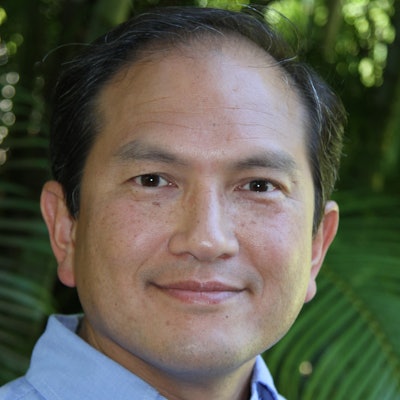 Ken Kazahaya, MD, MBA
Ken Kazahaya, MD, MBA
Candidate: AAO-HNS/F Secretary/Treasurer
Fiscal responsibility is important for operational efficiency to ensure long-term sustainability, viability, and growth of the AAO-HNS/F (Academy). As Secretary-Treasurer of the Academy, I will work to control costs and be conscious of expenditures and returns on investments, while considering options to build revenue streams as well as value for our membership. The pandemic and recent economic situation has increased challenges for providers and organizations with increased expenses, staffing shortages, and uncertainty in the marketplace. The current market has significant fluctuations in valuation and inflationary pressures. It will be imperative to continue to diversify the Academy’s investments, reducing exposure risks and portfolio losses from inflation and market volatility. I would strive to make educated recommendations to the Board to maintain a balanced and well-diversified investment policy and work to maximize our investment income while not putting our portfolio at unnecessary risk.
We must strive to develop new sources of revenue. Consideration for revenue growth of future members should not only include physicians. Programs may be developed and directed toward college and medical students, advanced practice providers, and ancillary personnel. We will also need development activities to continue to seek donor support for the Academy with personal, corporate, and estate donations.
Non-dues revenue makes up about two-thirds of the Academy’s annual budget. The largest non-dues revenue for the AAO-HNSF is the Annual Meeting & OTO Experience. The Annual Meeting accounted for about 27% of the FY2022 budget. Although much of the Annual Meeting revenue is from domestic attendees, there is increasing contribution from international attendees. Continuing the growth of attendees, both domestic and international, is important. Formulating concepts and programs to continue to expand the benefits for meeting attendees and encourage the involvement of medical students, residents and fellows, and young providers as well as otolaryngology affiliates would hopefully continue to increase attendance. Furthermore, cultivation of medical students and residents looks toward the future of our profession and the Academy. We should consider projects to encourage people who have not attended a recent Annual Meeting to return. Increasing meeting attendance will encourage more robust exhibitor participation and corporate support. Although hybrid meetings are currently a costly venture, I believe that we shall be able to capitalize on virtual meeting attendance and develop it into an additional revenue source. Miscellaneous revenue sources including publications, product sales, corporate support, and investment income will also need to continue to be developed.
Educational products such as FLEX and digital education provide membership with valuable information. Revenue-generating content could be directed at satisfying the ever-growing CME requirements that many states are instituting (opioid prescribing/crisis, child abuse, domestic violence, etc.). Formal educational and research programs for college and medical students as well as trainees could provide future revenue opportunities for the Academy. The Reg-entSM registry is starting to provide significant benefit to our membership and is projected to develop significant revenue streams; development of options for participation of academic centers and employed physicians will need to be undertaken.
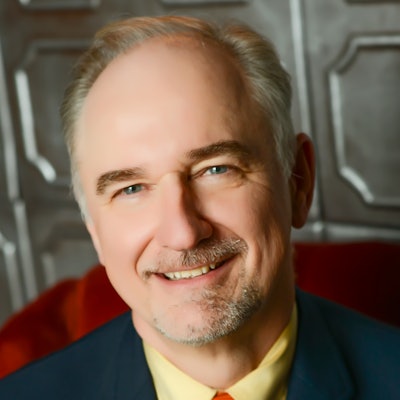 Robert P. Zitsch III, MD
Robert P. Zitsch III, MD
Candidate: AAO-HNS/F Secretary/Treasurer
I am truly honored to have been named a candidate for the AAO-HNS/F position of Secretary/Treasurer-elect by our Nominating Committee. This position serves a key role relative to the essential fiscal operations of our specialty organization, including overseeing the administration of funds and assets, service as Chair of the Finance and Investment Subcommittee (FISC), and development of the annual budget in collaboration with Academy staff.
My own engagement with our Academy began shortly after completing a head and neck fellowship, whereupon I became involved initially through contributions to various AAO-HNS/F education and research programs and later by way of participation in AAO-HNS/F Committees, including the Annual Meeting Program Committee. These experiences have forged my understanding of the structure and critical processes of our organization that enable effectiveness of the operational domains.
Financial sustainability and optimizing value for our members are priorities of the highest order for our Academy. They require prudent management of expenses and optimization of revenues from existing and novel sources. The current United States and global economies have several uncommon features not witnessed for many decades. Rapid deceleration of the economy, induced by the COVID pandemic, gave way to a precipitous rise in inflation that began mid-year 2021. In the wake of this, a sharp decline in workforce availability has triggered sharp increases in wages and interest rates. This economic dynamic has challenged the financial and operational integrity of our Academy. I credit our EVP/CEO, James C. Denneny III, MD, and our elected Academy leadership for a sensible response to this threat; they were innovative, making key decisions relative to operating expense management, while maintaining high-quality member services. These actions positively affected the AAO-HNS/F financial position and helped offset operating and investment activity shortfalls.
Nonetheless, I will prioritize working with our leaders to restore and sustain non-dues revenue sources that have not yet fully recovered. Annual Meeting revenues, which account for over 25% of the annual budget, were nearly 10% below budget for FY2022. Though further recovery will likely be realized for FY2023, I contend that growing the Annual Meeting participation needs to remain a priority. A second area of opportunity exists for educational product sales. This category of revenues has also not fully recovered from pre-COVID years. The AAO-HNSF, being the leader in educational materials production for our specialty, is well-positioned to develop new revenue streams from these resources. Finally, despite the existing economic milieu that has created losses across the equities markets, new opportunities have emerged among fixed-rate investments. Our contracted financial advisors have provided timely guidance to leverage our investments accordingly. As Chair of the FISC, I will be committed to working closely with the advisors to make choices that best serve the interests of our Academy.
Advancing our common interests through service as your Secretary/Treasurer-elect would be a great privilege for me. I would wholeheartedly embrace the responsibility of fiscal stewardship and am committed to devoting the time and effort necessary to ensure, and to advance, the vision of our organization.
At-Large Director (Academic)
(Vote for one of two)
Questions posed to the Candidates
- What unique attributes do you bring to the Board of Directors?
- How would you unify Academy members to promote the strategic plan and address issues of scope of practice, payer and regulatory concerns, and workforce challenges?
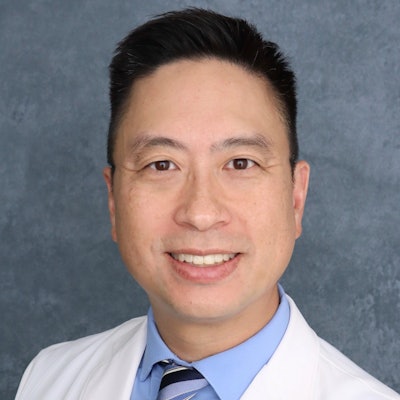 Gene C. Liu, MD, MMM
Gene C. Liu, MD, MMM
Candidate: AAO-HNS/F At-Large Director: Academic
I started in solo private practice, founded an otolaryngology-head and neck surgery division within a multispecialty group, and subsequently created an academic enterprise and residency program at Cedars-Sinai. I am the president of our 300+ provider group and medical director of business development in our medical network of 900+ providers. In addition to participation in otolaryngology-head and neck surgery organizations, I am involved in American Medical Group Association, Medical Group Management Association (MGMA), and other national organizations outside the specialty. My broad range of experiences would provide a unique set of perspectives and skills to the Board, including in the areas of payer and regulatory concerns.
Many otolaryngologists no longer fit the binary paradigm of academic versus private practice and are employed by hospitals, groups, and private equity. Some residency programs are run by non-university-based organizations. Addressing the diverse needs, including scope-of-practice concerns, of members working in a widening variety of practice models is crucial to our future success.
Younger physicians are increasingly pursuing fellowships and focusing on their subspecialty societies. Exploring the role of AAO-HNS in their careers, clearly defining our value proposition to these physicians, and navigating the relationships between AAO-HNS and the subspecialty societies are also critical.
Workforce challenges include wellness/burnout and a lack of diversity in otolaryngology-head and neck surgery. Educating administrators on the need for creating dyad partnerships and transparency in communication was the focus of my presentation at the MGMA Medical Practice Excellence Leaders Conference on physician satisfaction, engagement, and well-being. I advocated for structural and cultural changes to prevent burnout and will continue to champion these concepts on behalf of physicians. I also integrated diversity, equity, and inclusion concepts into three presentations at last year’s AAO-HNSF Annual Meeting on job search, recruitment, and annual reviews. As codirector of otolaryngology at the new Charles Drew University College of Medicine, I plan to engage underrepresented in medicine (URiM) students to foster early interest in otolaryngology-head and neck surgery.
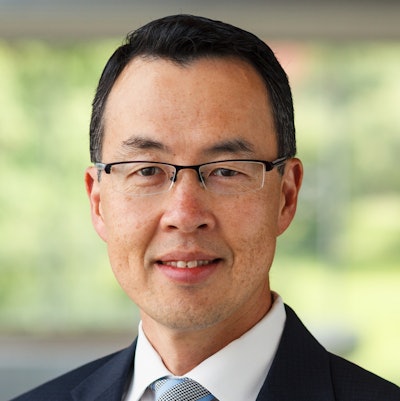 John S. Rhee, MD, MPH, MBA
John S. Rhee, MD, MPH, MBA
Candidate: AAO-HNS/F At-Large Director: Academic
I have had the opportunity to view our specialty from many leadership vantage points within our specialty walls—otolaryngology department chair for 12 years, American Board of Otolaryngology – Head and Neck Surgery president, Accreditation Council for Graduate Medical Education Otolaryngology Resident Review Committee chair, AAO-HNSF Research and Quality Coordinator—and outside of our specialty boundaries, including dermatology and ophthalmology interim chair positions and multispecialty practice plan CEO. Our specialty, though relatively small compared to some other disciplines, has a robust web of connections to just about every facet of medicine. Having listened to others inside and outside our specialty has helped me better understand how our specialty “fits” in the larger field of medicine and how our specialty is uniquely positioned to be of greatest benefit to our society.
Our Academy is the largest convener and collective voice for our “connecting specialty” and thus has the responsibility and privilege to bring out the best of what our specialty can do for medicine and for our patients. To be our best for others, we need to be united as a specialty and take great care of our constituents.
Specifically, we need to:
- Continue to deliver and invest in top-notch education opportunities and offerings for our early learners to experienced practitioners
- Always have the well-being of our physicians and advanced practice providers top of mind when devising policies, procedures, and other strategic initiatives
- Advocate for and showcase our specialty’s unique and best-qualified skills in taking care of our patients—our skills and knowledge are not reproducible by others
- Deepen and broaden our connections with other medical disciplines—we are an indispensable entity that improves patient outcomes when we are involved and integrated.
Thank you for considering my candidacy. I look forward to taking on these challenges together with you to ensure that our specialty remains vital and indispensable to our medical realms and communities.
At-Large Director (Private Practice)
(Vote for one of two)
Questions posed to the Candidates
- What unique attributes do you bring to the Board of Directors?
- How would you unify Academy members to promote the strategic plan and address issues of scope of practice, payer and regulatory concerns, and workforce challenges?
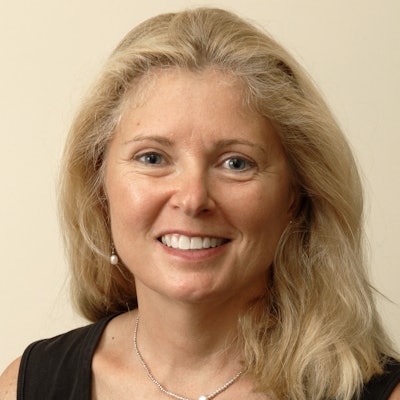 Mary T. Mitskavich, MD
Mary T. Mitskavich, MD
Candidate: AAO-HNS/F At-Large Director: Private Practice
I am reaching out to respectfully request your support for my candidacy as At-Large Director (Private Practice). I am confident that I possess the necessary qualifications to serve in this role and bring about positive change for our organization.
As the founder and managing partner of a successful 10-physician private practice, I have encountered and overcome the challenges of being a solo practitioner and managing the growth of a practice. My extensive experience in various leadership positions, including vice chair of the Private Practice Study Group, many roles within our large hospital system, and as founding partner in two private surgical centers, has equipped me with a well-rounded and capable skill set that I am eager to bring to the table.
As At-Large Director, I hope to inspire each private practitioner to contribute to our cause, whether it be through volunteering their time or making financial donations to the Academy and ENT PAC. These resources will enable us to better advocate for fair reimbursement and tackle regulatory challenges such as Merit-based Incentives Payment System (MIPS), prior authorization, and the lack of electronic medical record (EMR) interoperability.
During these times of inflation, I believe that fair private practice reimbursement can be achieved through a range of efforts such as advocating for higher Medicare rates, developing clinical integration networks (CINs), and offering tactical education of our providers. Educating residents on the merits of private practice is also a priority.
In this role, I will work closely with all Academy groups and committees to further our agenda, as collaboration is key. I am eager to put my experience, enthusiasm, fresh perspective, and innovative ideas to work in service of our members, and I am confident that I possess the skills and commitment necessary to help our group thrive.
Thank you for your kind consideration.
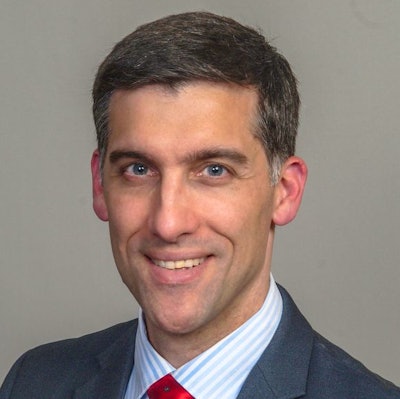 Andrew J. Tompkins, MD, MBA
Andrew J. Tompkins, MD, MBA
Candidate: AAO-HNS/F At-Large Director: Private Practice
Although I pride myself on diligence and honesty, these traits are hardly unique among such high-minded colleagues. However, my personal experiences provide a unique perspective on medicine. Having spent an intern year taking care of wounded servicemen prior to residency and eight years in the Navy subsequent to training, I gained in-depth knowledge of a different medical system. This time allowed me to garner an outside and objective view of healthcare, offered leadership and quality roles, and honed a business acumen in business school. When examining our healthcare system from this parallel perspective, I saw our challenges and their causes in a different light.
Despite having joined the civilian workforce in private practice years ago, I am still rooted in that outsider perspective with a mission-centric attitude. Otolaryngologists should be proud of our accomplishments, but now we must be laser-focused on the root causes of our challenges. Progress to that end becomes stronger with diversity of perspective and willingness to tackle these problems head-on.
I have built personal relationships with colleagues and Board members while serving on the Board of Governors (BOG), Socioeconomic and Grassroots (SEGR), and Patient Safety and Quality Improvement (PSQI) Committees, the Wellness Task Force, and now in chairing our Workforce and Socioeconomic Task Force. And, with this foundation, we will need to further unify under a guiding principle in order to craft policy and tackle our diverse challenges by doing what is best for the patient. The incremental changes necessary to reach our goals require a coordinated, persistent, and unified voice across multiple organizations while remaining resolute and mission focused. But, if patient care optimization remains paramount, we can stand unified in those aims.
Representing and advocating for our private practitioners on that journey would be a great honor. I look forward to continuing to serve you all, and I appreciate your consideration.
Nominating Committee: Academic
(Vote for one each type of two)
Questions posed to the Candidates
- What experiences have you had that will allow you to identify a diverse set of candidates for Academy leadership?
- What are the most important attributes you look for when nominating a member for leadership within the Academy?
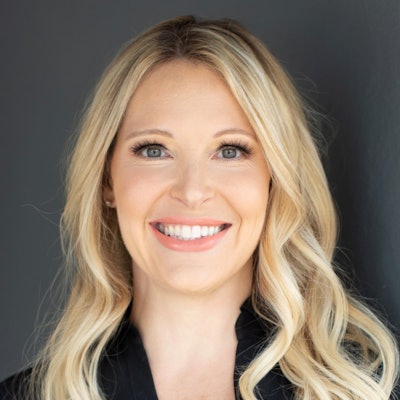 Sarah N. Bowe, MD, EdM
Sarah N. Bowe, MD, EdM
Candidate: AAO-HNS/F Nominating Committee: Academic (Seat 1)
Sarah N. Bowe, MD, EdM
My role as a Nominating Committee member is to propose a slate of candidates with “perspectives that represent the varying interests and concerns of the general membership,” in essence, diversity. Diversity is beneficial for groups that engage in complex decision-making, because greater expression of differing perspectives can lead to greater consideration of alternative solutions. The Academy has recognized the value of ensuring diversity regarding practice setting. I would expand upon these efforts, seeking individuals with diversity in such areas as (sub)specialty, geographic location, urbanicity/rurality, and program/practice size. Furthermore, I would approach candidates who have specifically demonstrated commitment to the Academy, courage in expressing dissenting perspectives, and curiosity as their guiding approach to listening.
Through my substantial involvement and leadership in the Academy, Society of University Otolaryngologists, and The Triological Society, as well as grassroots efforts, including Headmirror.com, I have developed a broad network of contacts across the country. I also have been an ardent supporter of social media, which allows individuals to easily connect with colleagues across geographic boundaries. It would be my honor to capitalize on these relationships, identify qualified underrepresented individuals within our specialty, champion them throughout the nomination process, and shape the future leadership of our Academy.
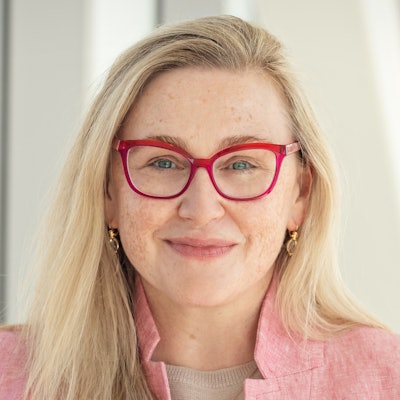 Kelly M. Malloy, MD
Kelly M. Malloy, MD
Candidate: AAO-HNS/F Nominating Committee: Academic (Seat 1)
As Finance Officer and Chair of the Endowment Committee for the Women in Otolaryngology (WIO) Section, I have experience recruiting diverse members, ensuring that the WIO Endowment is led by women from different backgrounds and practice settings. During my tenure as Chair of the Simulation Education Committee, I intentionally recruited new members from all subspecialty areas of otolaryngology and stage of career, with an eye to maintaining gender equity and improving racial and ethnic diversity. When I became Chair, this committee was composed entirely of academic otolaryngologists, and I am proud to have recruited our first private practice members. I have also served on nominating committees for other organizations, including the American Head and Neck Society and my medical school alumni board, and as a trustee of an independent school; these experiences have given me deep understanding of best practices in recruiting diverse talent, assessing candidates, and nominating a diverse slate of leaders.
As a Nominating Committee member, I will be looking for leaders who are energetic, creative, reliable and who bring unique experiences and perspectives to our leadership team. We need voices representing the breadth of our profession at our leadership table to ensure a vibrant future for our Academy.
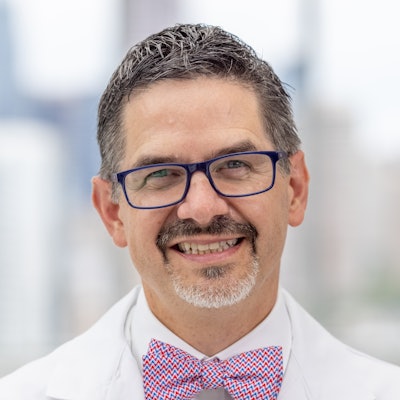 D. Gregory Farwell, MD
D. Gregory Farwell, MD
Candidate: AAO-HNS/F Nominating Committee: Academic (Seat 2)
D. Gregory Farwell, MD
I truly enjoy finding talent. As a department chair and health system leader, I have been frequently tasked with the privilege and responsibility of recruiting impactful individuals. Whether it is searching out medical students, residents, fellows, faculty, or health system leaders, looking for those transformative candidates and then supporting their path to success are some of the greatest joys of my career. For that reason, I am so excited to be nominated, and I thank you very much for your consideration of my candidacy for the Nomination Committee of the American Academy of Otolaryngology–Head and Neck Surgery. This nomination is a huge honor, and I am eager to get to work on behalf of our membership to find talented, diverse, energetic, and driven leaders for our Academy.
There are several attributes that must be prioritized in nominating our Academy’s next leaders. Advocacy, fairness, empathy, excellence, inclusivity, and passion are critical for leadership of such a diverse specialty. I will look for diverse perspectives across the spectrum of our careers as otolaryngologists, from private practice to employed practices to academic practices. I will prioritize advocates for our patients and our otolaryngology colleagues who dedicate their lives to the care of our patients.
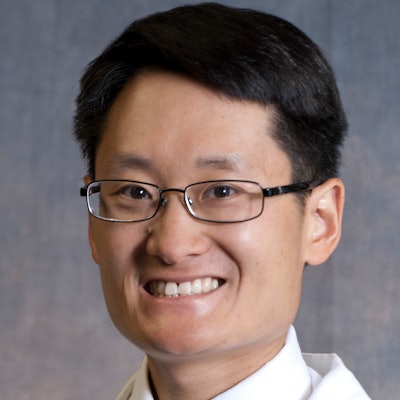 Jeffrey C. Liu, MD
Jeffrey C. Liu, MD
Candidate: AAO-HNS/F Nominating Committee: Academic (Seat 2)
I have been fortunate to work with a tremendous number of otolaryngologists as an AAO-HNS leader. I have served in many roles, including Chair for the Section for Residents and Fellows-in-Training and later as Chair for the Young Physicians Section. I have also served as Associate Editor for Otolaryngology–Head and Neck Surgery and am the current CORE Grants Head and Neck Subcommittee Chair. In years of service, including eight years in elected Academy positions, I have worked with otolaryngologists of different race, gender, religion, ethnicity, practice type (private or academic), and experience (students, residents, fellows, junior faculty, seasoned faculty, chairpersons). This broad range of experiences have introduced me to so many diverse physicians. I have found such strength in the diversity of our specialty and all the persons who contribute. I am confident I can help identify a diverse group of future leaders for leadership consideration in the AAO-HNS.
Commitment to mission and integrity are the two most important attributes for Academy leaders. Leaders need to have a track record of volunteerism and service investment to the AAO-HNS, upholding and forwarding our collective mission of promoting and supporting otolaryngologists. I will look for candidates who have demonstrated, in both word and deed, these attributes.
Nominating Committee: Private Practice
(Vote for one each type of two)
Questions posed to the Candidates
- What experiences have you had that will allow you to identify a diverse set of candidates for Academy leadership?
- What are the most important attributes you look for when nominating a member for leadership within the Academy?
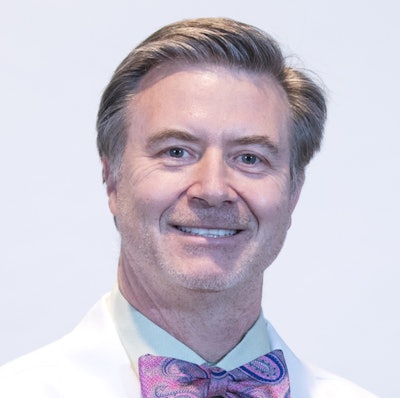 Dole P. Baker, Jr., MD
Dole P. Baker, Jr., MD
Candidate: AAO-HNS/F Nominating Committee: Private Practice (Seat 1)
Dole P. Baker Jr., MD
A diverse set of candidates for leadership roles is crucial to the Academy’s continued growth and future success. The diversity needs to reflect the complete spectrum of otolaryngology—racial and ethnic; gender and geographical; private practice and employed (large and small) and academics; seasoned, experienced individuals and younger, ambitious future leaders. Candidates should be representative of the whole specialty and its many components, from comprehensive otolaryngology to neurotology and everyone in between.
I have been active and involved in a variety of our specialty's organizations for over 15 years. This has included many years of service on the Academy's Annual Meeting Program Committee and Board of Governors (BOG), leadership and board positions for the American Academy of Otolaryngic Allergy (AAOA), and the Upstate of SC ENT Society, as well as attendance at numerous meetings and conferences. These afforded me the opportunity to develop a large and diverse network of colleagues from which to help identify future Academy leaders.
The most important attribute I look for in nominating an individual for leadership is passion. The physicians I want to see leading the Academy are those who possess the requisite qualifications and are most passionate about helping to shape the future of otolaryngology through volunteer service to the AAO-HNS.
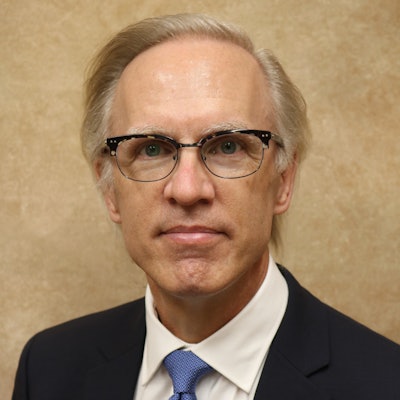 Stephen P. Cragle, MD
Stephen P. Cragle, MD
Candidate: AAO-HNS/F Nominating Committee: Private Practice (Seat 1)
I have spent many years networking in private practice and presenting at and attending the AAO-HNSF Annual Meeting. I am a member of the Private Practice Study Group and its Business of Medicine Committee, the Practice Management Education Committee and its FLEX Work Group, the Board of Governors (BOG) Socioeconomic and Grassroots Committee, and the History and Archives Committee, with many networking opportunities in committee work. I am a founding member of the Academy’s newest entity, the Private Practice Work Group, and am active on ENT Connect. I attend the Board of Governors’ spring and fall meetings and the Young Physicians Section meeting. I have participated as author and editor on numerous articles on the business of medicine.
I look for a sense of stewardship, of giving to the greater good; a passion for otolaryngology science and practice; a thought leader in our specialty who understands pressing clinical, socioeconomic, and political issues, and is able to collaborate well with other leaders. A clear vision of our specialty’s future means more than a list of past accomplishments.
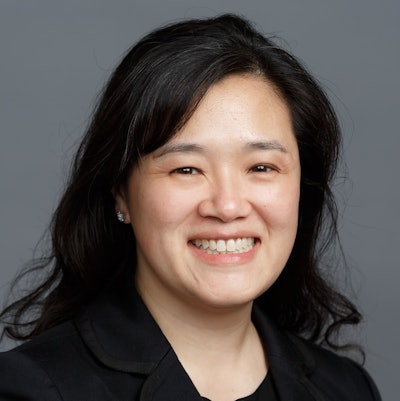 Annette M. Pham, MD
Annette M. Pham, MD
Candidate: AAO-HNS/F Nominating Committee: Private Practice (Seat 2)
Annette M. Pham, MD
Being actively involved in local and regional medical societies, I have served on prior nominating committees. Identifying a diverse set of candidates requires one to thoughtfully seek out colleagues with differing perspectives and backgrounds and call them to action. As a woman, wife, dance/hockey/soccer mom, and facial plastic surgeon/otolaryngologist, I wear many hats. I have unique insight and perspective on the qualities and character traits that contribute to a productive team. With these experiences, I am ready to serve the Academy.
BE REAL. Simply put, a fundamental attribute I look for in a leader is someone who is authentic, someone who is real. The letters also stand for important traits. “B” is big picture; a leader sees the big picture, a vision that can become a reality. “E” is empowering; an ideal leader can empower their team to achieve high goals. “R” is for responsible. Another “E” is for engaged. I want a leader who is engaged and invested in the success of the organization. “A” is adaptable. A leader can adapt to challenges, help steer the team through any obstacles. Finally, “L” is for loyal and likeable. These are my criteria for future leadership positions.
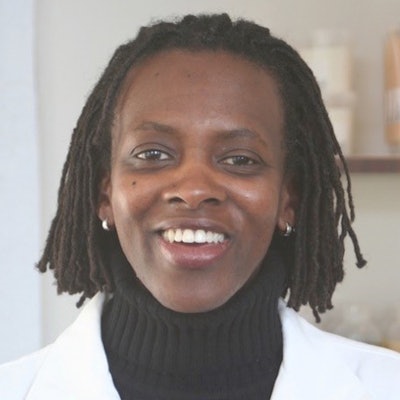 Yolanda L. Troublefield, MD, JD
Yolanda L. Troublefield, MD, JD
Candidate: AAO-HNS/F Nominating Committee: Private Practice (Seat 2)
My ability to identify diverse candidates has been forged from representing AAO-HNS members on the Board of Governors (BOG), within the Massachusetts Society of Otolaryngology, and as a corporate attorney. These experiences enabled me to appreciate important attributes of an individual’s breadth of thought, locale, and expertise. As an attorney, I developed written instruments, used by our firm to reveal the strengths, character, distinct talents, commitment, and novel thinking of directors chosen to sit on our clients’ boards. These experiences provide me with the ability to approach selecting a range of candidates through a mosaic of lenses geared toward serving the Academy.
I have learned that organizational success is anchored in individuals who are placed in the best position to thrive. Among the most important candidate attributes are their demonstration of commitment toward excellence, respect for the Academy’s mission, and a willingness to become a leader. Finding candidates amenable to learn, work as a team, and coalition build is key. Demonstrating a desire to grow in a multitude of professional dimensions is crucial. Ultimately, understanding the candidates’ tangible and intangible assets and their ability to think beyond the “page” will facilitate the selection of the best candidates striving to become Academy leaders.
Audit Committee
(Vote for one of two)
Question posed to the Candidates
- What qualifications or experience allow you to be an effective member of the Audit Committee of the Academy?
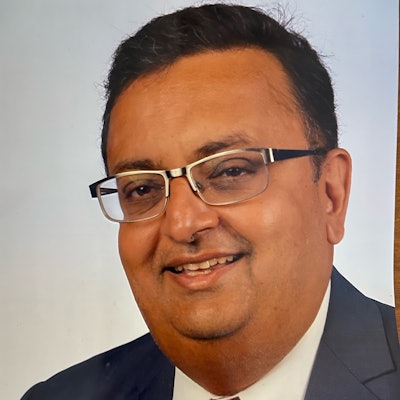 Ashutosh Kacker, MD, MBBS, MS
Ashutosh Kacker, MD, MBBS, MS
Candidate: AAO-HNS/F Audit Committee
I value financial accountability and transparency, and I would be honored by the opportunity to serve on the Audit Committee. This service opportunity represents a chance to give back to AAO-HNS and aligns well with my own experience, values, and passions.
The Audit Committee plays a critical role in ensuring the financial integrity and accountability of the Academy. By serving on this committee, I can have a direct impact on the Academy’s financial well-being and its long-term stability and success.
I have served in similar roles with the American Rhinologic Society as a member of its Audit Committee in addition to my experience as both a member and past president of the American Association of Otolaryngologists of Indian Heritage. I serve as the current representative to the general faculty council at my home institution; in this capacity, I represent the department regarding critical budget and strategic planning decisions for the medical school and hospital.
The opportunity to serve on the AAO-HNS/F Audit Committee provides the unique opportunity to gain a deeper understanding of the financial operations of the institution and make a positive impact on the Academy. It would be an honor to serve the Academy in this capacity.
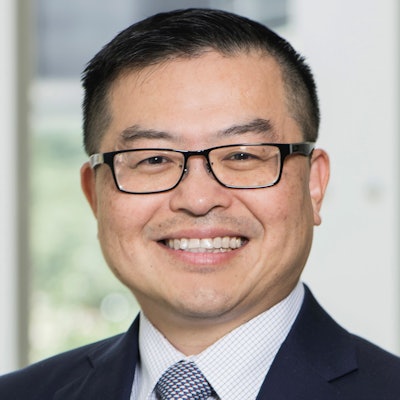 Mas Takashima, MD
Mas Takashima, MD
Candidate: AAO-HNS/F Audit Committee
Having been an active member of the Academy for 27 years and having served on seven committees and several educational and advocacy groups, I understand the importance of financial transparency and oversight. The Audit Committee is vital to the critical fiduciary responsibility that ensures the reliable and secure fiscal footprint necessary to advance the goals of our Academy.
Four years ago, I became the inaugural departmental chair at Houston Methodist, now with 22 faculty and a new residency program. The rapid growth of departmental academic, clinical, and research arms requires rigorous oversight of the budget. My supplemental education in healthcare management and executive education at the Jones School of Business at Rice University and the T.H. Chan School of Public Health at Harvard has given me the insight into the business side of medicine. My department continues to grow exponentially.
In 2019, I became a Foundation board member of the American Academy of Otolaryngic Allergy (AAOA). The following year, I served as AAOA/f treasurer, interacting with external auditors.Last year, in recognition of my financial acumen, I was asked to join the AAOA/f Investment Committee. I plan to parlay what I have learned from these experiences to the Audit Committee.

